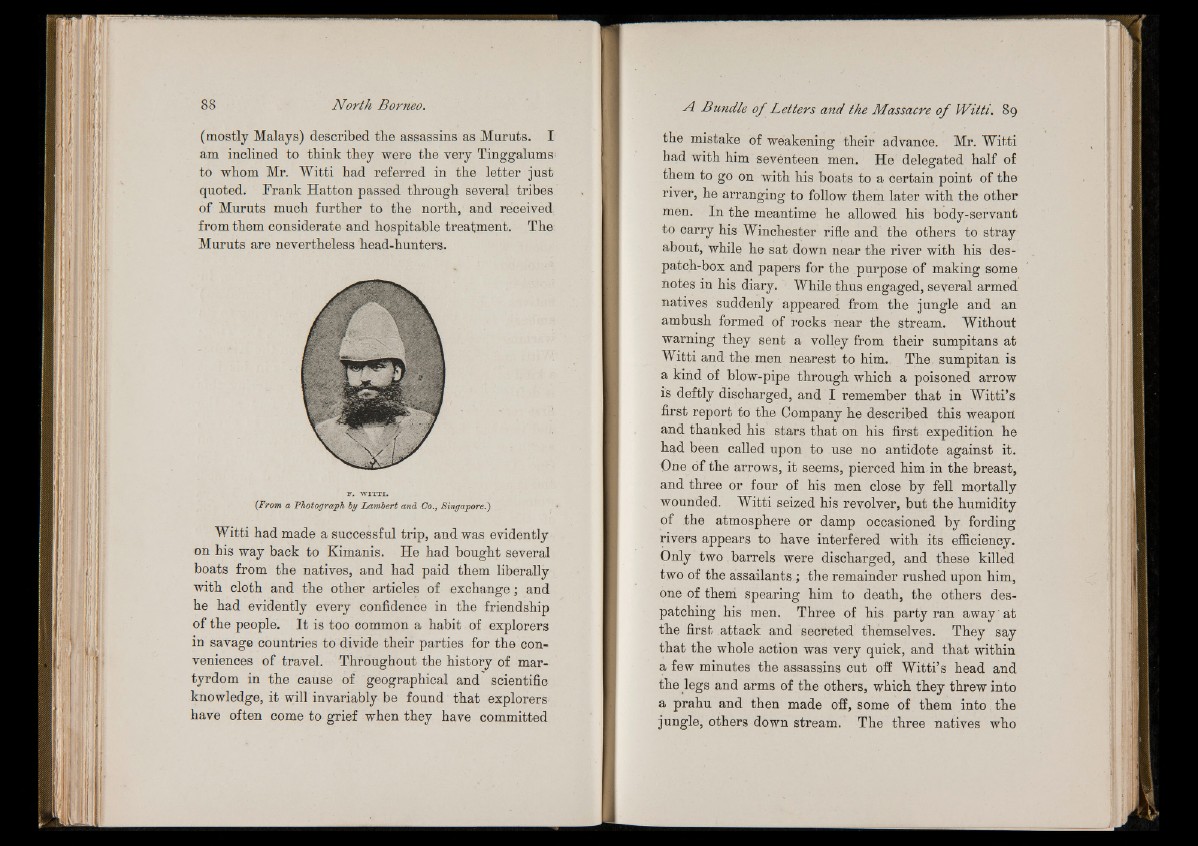
(mostly Malays) described the assassins as Muruts. I
am inclined to tbink they were the very Tinggalums
to whom Mr. Witti had referred in the letter just
quoted. Frank Hatton passed through several tribes
of Muruts much further to the north, and received
from them considerate and hospitable treatment. The
Muruts are nevertheless head-hunters.
3?. WITT I.
(From a Photograph by Lambert and Co., Singapore. )
Witti had made a successful trip, and was evidently
on his way back to Kimanis. He had bought several
boats from the natives, and had paid them liberally
with cloth and the other articles of exchange; and
he had evidently every confidence in the friendship
of the people. I t is too common a habit of explorers
in savage countries to divide their parties for the conveniences
of travel. Throughout the history of martyrdom
in the cause of geographical and scientific
knowledge, it will invariably be found th a t explorers
have often come to grief when they have committed
the mistake of weakening their advance. Mr. Witti
had with him sevénteen men. He delegated half of
them to go on with his boats to a certain point of the
river, he arranging to follow them later with the other
men. In the meantime he allowed his bodv-servant
to carry his Winchester rifle and the others to stray
about, while he sat down near the river with his des-
patch-box and papers for the purpose of making some
notes in his diary. While thus engaged, several armed
natives suddenly appeared from the jungle and an
ambush formed of rocks near the stream. Without
warning they sent a volley from their sumpitans at
Witti and the, men nearest to him.. The sumpitan is
a kind of blow-pipe through which a poisoned arrow
is deftly discharged, and I remember that in Witti’s
first report to the Company he described this weapon
and thanked his stars that on his first expedition he
had been called upon to use no antidote against it.
One of the arrows, it seems, pierced him in the breast,
and three or four of his men close by fell mortally
wounded. Witti seized his revolver, but the humidity
of the atmosphere or damp occasioned by fording
rivers appears to have interfered with its efficiency.
Only two barrels were discharged, and these killed
two of the assailants,; the remainder rushed upon him,
one of them spearing him to death, the others despatching
his men. Three of his party ran away 'a t
the first attack and secreted themselves. They say
that the whole action was very quick, and that within
a few minutes the assassins cut off Witti’s head and
the legs and arms of the others, which they threw into
a prahu and then made off, some of them into the
jungle, others down stream. The three natives who